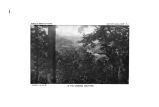| OCR Text |
Show MOONEY] U'TSALI AND CHARLEY 157 Wisdom, the Cherokee Nation numbered 34,461 persons, as follows: Cherokee by blood ( including all degrees of admixture), 26,500; intermarried whites, 2,300; negro freedmen, 4,000; Delaware, 871; Shawnee, 790. The total acreage of the Nation was 5,031,351 acres, which, if divided per capita under the provisions of the Curtis bill, after deducting 60,000 acres reserved for town- site and other purposes, would give to each Cherokee citizen 144 acres. 1 It must be noted that the official rolls include a large number of persons whose claims are disputed by the Cherokee authorities. THE EA8TERN BAND It remains to speak of the eastern band of Cherokee- the remnant which still clings to the woods and waters of the old home country. As has been said, a considerable number had eluded the troops in the general round- up of 1838 and had fled to the fastnesses of the high mountains. Here they were joined by others who had managed to break through the guard at Calhoun and other collecting stations, until the whole number of fugitives in hiding amounted to a thousand or more, principally of the mountain Cherokee of North Carolina, the purest- blooded and most conservative of the Nation. About one- half the refugee warriors had put themselves under command of a noted leader named U'ts& l&, u Lichen, " who made his headquarters amid the lofty peaks at the head of Oconaluftee, from which secure hiding place, although reduced to extremity of suffering from starvation and exposure, they defied every effort to effect their capture. The work of running down these fugitives proved to be so difficult an undertaking and so well- nigh barren of result that when Charley and his sons made their bold stroke for freedom2 General Scott eagerly seized the incident as an opportunity for compromise. To this end he engaged the services of William II. Thomas, a trader who for more than twenty years had been closely identified with the mountain Cherokee and possessed their full confidence, and authorized him to submit to U'ts& l& a proposition that if the latter would seize Charley and the others who had been concerned in the attack upon the soldiers and surrender them for punishment, the pursuit would be called off and the fugitives allowed to stay unmolested until an effort could be made to secure permission from the general government for them to remain. Thomas accepted the commission, and taking with him one or two Indians made his way over secret paths to U'te& la's hiding place. He presented Scott's proposition and represented to the chief that by aiding in bringing Charley's party to punishment according to the rules of war he could secure respite for his sorely pressed followers, with the ultimate hope that they might be allowed to remain in their 1 Report of Agent D. M. Wisdom, Report of Indian Commissioner, p. 159,189S. * See page 131. |































































































































































































































































































































































































































